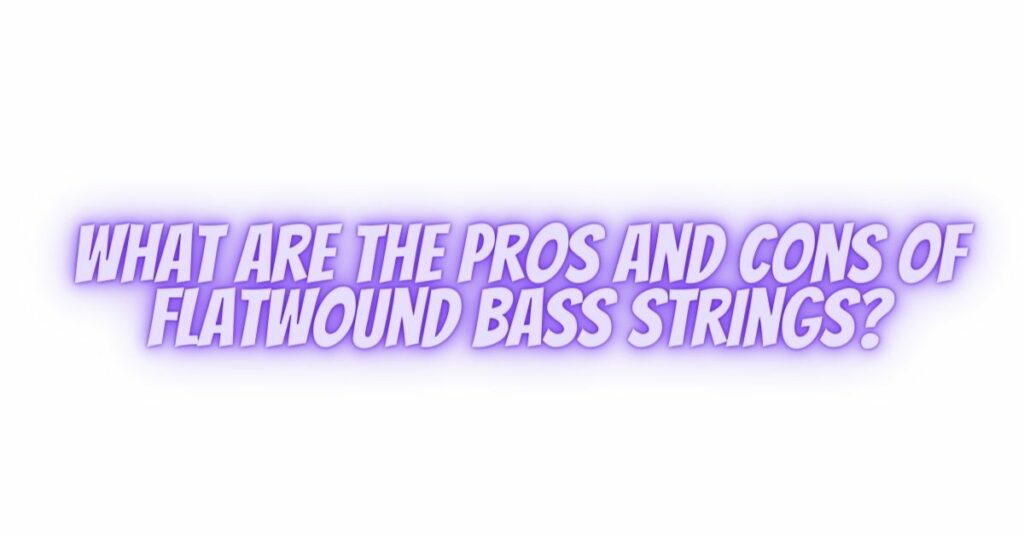Bass guitar strings come in various types, and one popular option is flatwound bass strings. These strings are characterized by their smooth, flat outer winding, which offers a distinct tonal profile and unique playing experience. In this comprehensive article, we will explore the pros and cons of flatwound bass strings to help you make an informed choice when selecting strings for your bass guitar.
Pros of Flatwound Bass Strings:
1. Warm and Mellow Tone:
- One of the most significant advantages of flatwound bass strings is their warm, mellow, and smooth tone. They produce a vintage and retro sound that’s often associated with genres like jazz, R&B, and classic rock.
2. Reduced Finger Noise:
- Flatwounds have a smooth surface that minimizes finger noise while playing, making them ideal for recording and live performances where a clean and noise-free sound is desired.
3. Vintage Aesthetic:
- Flatwound strings contribute to a classic and vintage appearance, giving your bass guitar an authentic, retro look that’s popular among bassists.
4. Longer Lifespan:
- Flatwound bass strings tend to last longer than roundwound strings due to their smoother surface, which reduces friction and wear. This can result in fewer string changes and less maintenance.
5. Precision and Clarity:
- Flatwounds offer precise and clear note articulation, making them an excellent choice for bassists who value note definition and clarity in their playing.
6. Comfortable Playing Experience:
- The smoothness of flatwound strings can make playing more comfortable for some bassists, as they reduce finger fatigue and provide a smooth feel under the fingertips.
Cons of Flatwound Bass Strings:
1. Limited Brightness and Sustain:
- Flatwound strings are not known for their brightness or sustain. If you require a sharp, cutting tone or extended sustain, flatwounds may not be the best choice for you.
2. Less Versatility:
- Flatwound strings are typically associated with specific genres like jazz, blues, and R&B. They may not be well-suited for genres that demand brighter and more aggressive tones, such as rock or metal.
3. Limited Playing Techniques:
- Certain playing techniques, such as slap bass and aggressive fingerstyle, are more challenging to execute effectively with flatwound strings due to their smooth surface and reduced brightness.
4. Reduced Harmonic Overtones:
- Flatwounds produce fewer harmonic overtones compared to roundwound strings. While this can result in a cleaner and more focused tone, it may not be suitable for genres where harmonic content is desired.
5. String Tension:
- Flatwound strings tend to have higher tension than roundwounds, which can be a consideration for players who prefer a lighter touch or a more flexible feel.
Conclusion:
Flatwound bass strings offer a unique tonal and playing experience that is valued by many bassists, especially those in genres that require a warm, vintage sound. However, they may not be the best choice for every player or musical style. Consider your musical preferences, playing techniques, and the genre you perform in when deciding whether flatwound bass strings are the right fit for your bass guitar. Ultimately, the pros and cons of flatwound bass strings should align with your specific musical goals and playing style.


